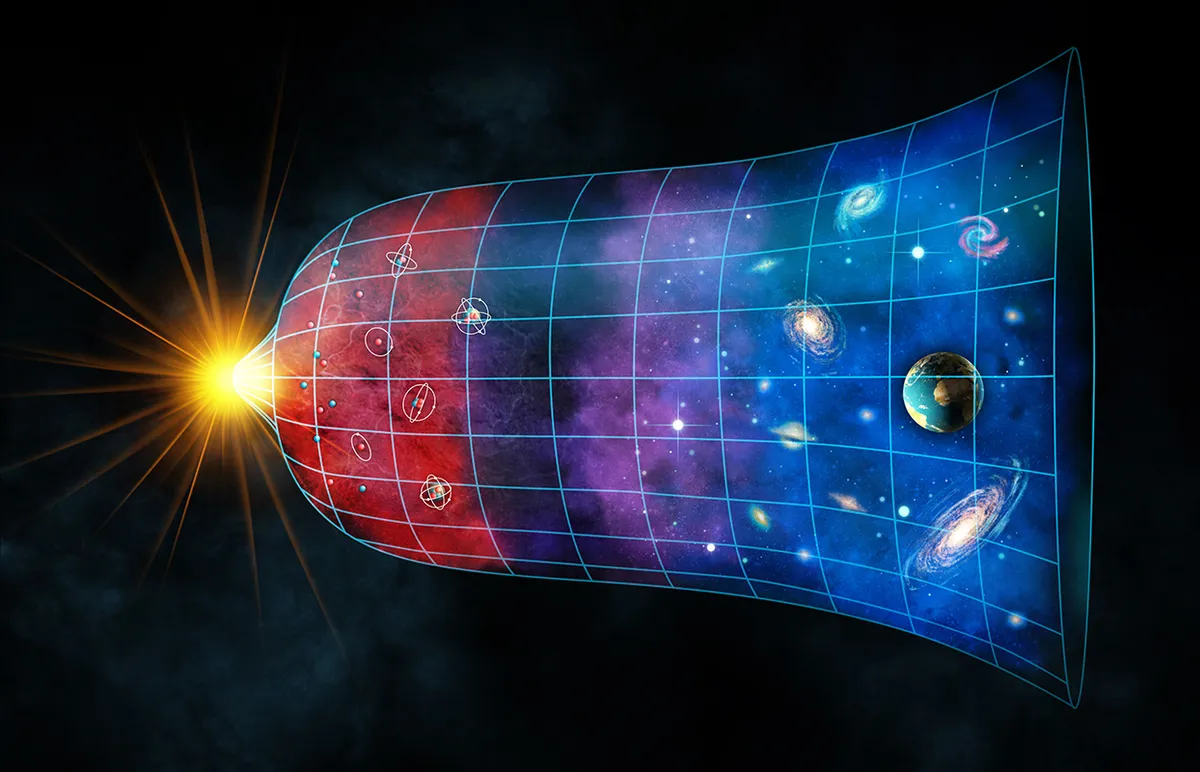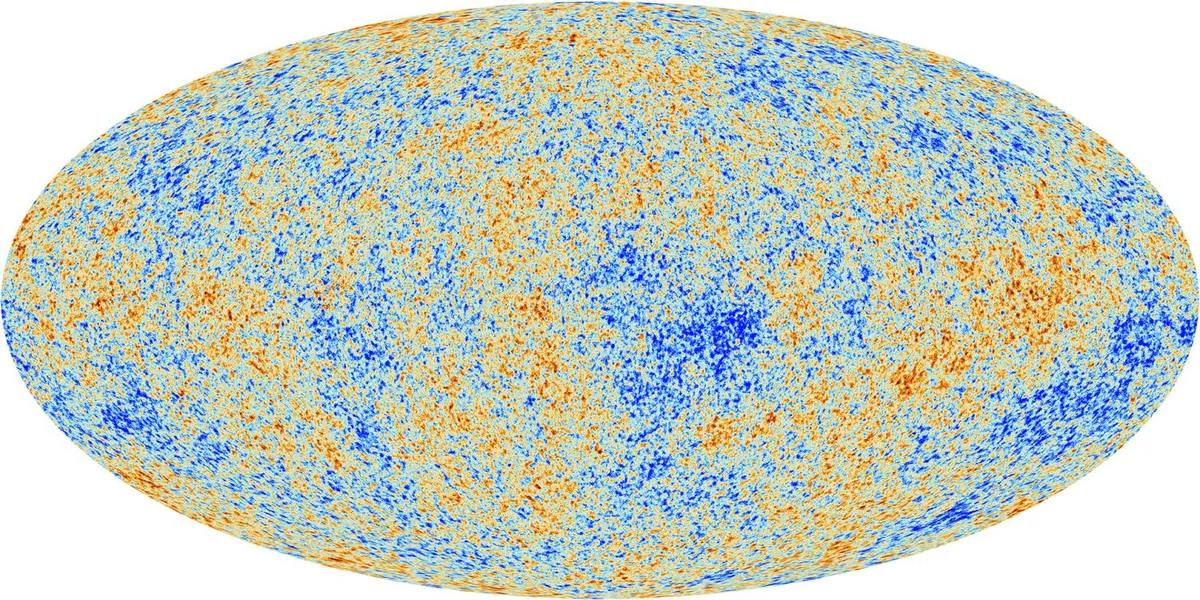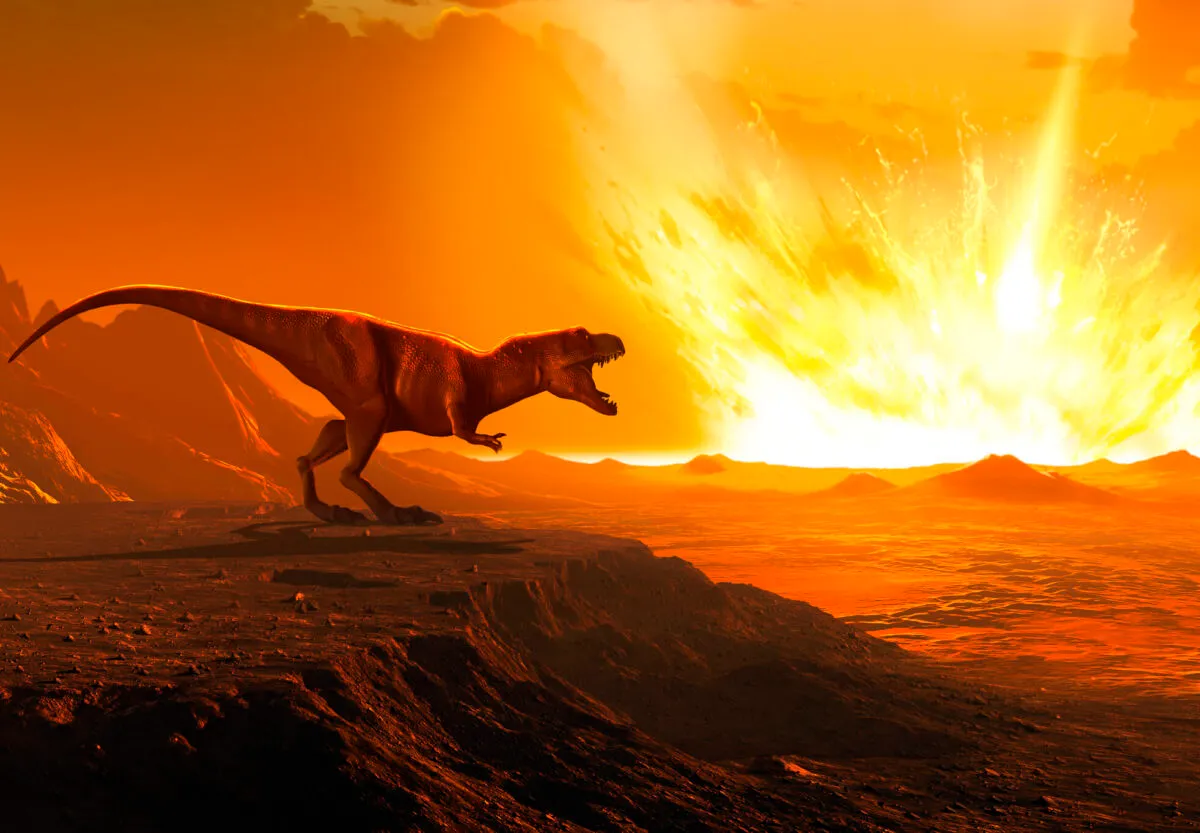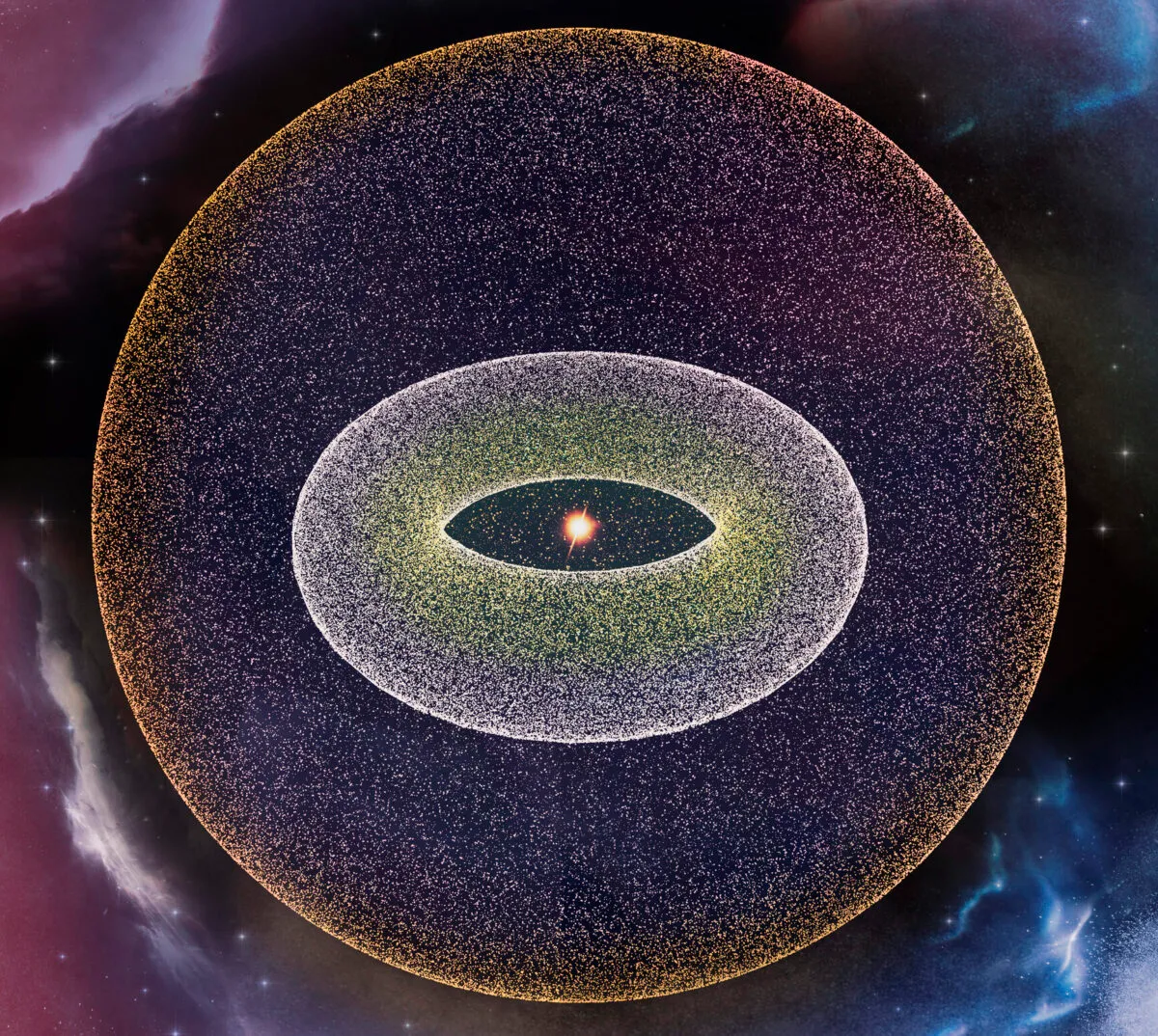The notion of the asteroid that killed the dinosaurs is widely accepted, but could there be a different explanation involving gravity and the expansion of the Universe?
Professor Leandros Perivolaropoulos of the University of Ioannina in Greece is clearly not someone who shirks from a challenge.
In a flurry of papers released in 2021, he suggests a solution to one of the biggest problems in modern cosmology.
Now he thinks that the same explanation may account for why the dinosaurs died when they did. Not bad for a year’s work.
Let me explain.
The cosmological problem Perivolaropoulous addresses concerns the speed of the expansion of the Universe, most often expressed as a number called the Hubble Constant.

Hubble Constant explained
The Hubble Constant measures the current speed of expansion of the Universe and there are two main methods of measuring it:
We can look around us, using so-called ‘standard candles’ such as Type 1a supernovae to measure it.
We can look at the early Universe, at the Cosmic Microwave Background, and extrapolate to the present day.
In recent years, these two methods have both improved in accuracy, but they disagree with one another, causing something of a crisis.

The world isn’t short of suggestions for how to fix the problem, ranging from possible errors in the complex analysis carried out in each case, to exotic new theories of cosmology.
Perivolaropoulos is in the second camp, as he suggests that the observations can be reconciled with each other by a recent change in the strength of gravity.
‘All’ that has to happen is for gravity to have become about 10% stronger sometime in the recent past.
Such a change would alter the properties of all the objects, such as supernovae, we observe and thus allow cosmologists to resolve their disagreements.
A change within the last 150 million years would do nicely.

So where do gravity and the dinosaurs come in?
Which brings us to the dinosaurs. You can’t change gravity without having an effect on the orbit of Earth and pretty much everything else.
Earth would have got hotter, something Perivolaropoulos claims, unconvincingly, to see reflected in the temperature records.
On the outskirts of the Solar System, the odds of objects in the Oort Cloud – the major reservoir of comets – being slung into the inner Solar System increase as gravity does.
More incoming comets means more impacts like the one that caused the extinction of the dinosaurs.
If the transition in gravity hadn’t happened, giant lizards may have continued to walk on Earth.

Now, I don’t believe Perivolaropoulos’s theory.
It seems too much of a coincidence to have such a dramatic change in physics happen just before we appeared with our telescopes and equations to study it.
I also don’t think adding several more layers of speculation to explain the geological record helps much.
Fun though it is to speculate, if you want me to believe in changing gravity then put dinosaurs aside and explain why such a change could only have happened recently.
Or work out if the strength of gravity could be always changing instead of requiring one sudden move.
Or just work out a way to test the ideas directly.
Until then, thinking about what happened to the dinosaurs is strictly for the birds.
Chris Lintott was reading Is the Hubble crisis connected with the extinction of dinosaurs? by Leandros Perivolaropoulos. Read it online at: arxiv.org/abs/2201.08997
This article appeared in the June 2022 issue of BBC Sky at Night Magazine.
